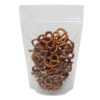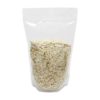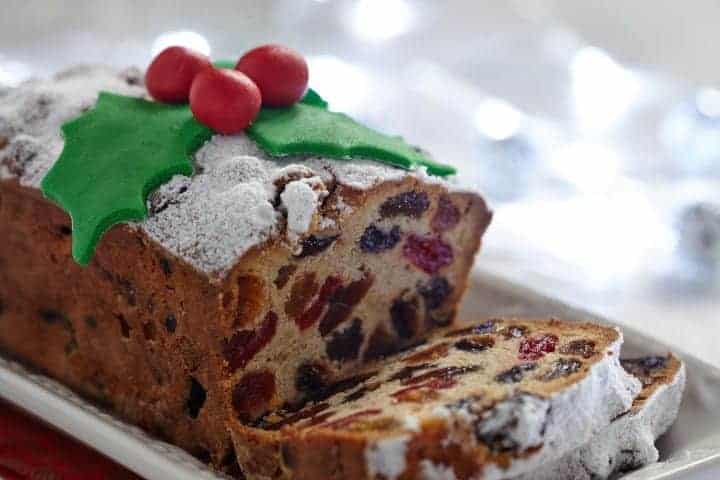Blog
Why Do We Hate Fruitcake So Much?
The oldest known recipe for fruitcake dates back to ancient Rome and included pomegranate seeds and raisins. It wasn’t until the 1500s when sugar from the American Colonies became widely available and it was discovered that large quantities of sugar could help to preserve fruits that fruitcakes became a more affordable and popular dessert.
Using the word popular in the same sentence with fruitcake, however, may seem a misnomer to most unless “popular” is immediately preceded by the word “least.” Fruitcake in modern times has developed, pardon the pun, a less than savory reputation. What’s behind the ire for this fruity baked good, though? Where did it begin and is it even still valid?
Lindy West of Jezebel asks what I think is the most valid question when it comes to the contemporary debate over fruitcake: “What Is With Our National Anti-Fruitcake Obsession? Have Any of you Even HAD Fruitcake?”
My answer is no. The dessert has such a prolifically negative reputation that I have, for my nearly three decades of life, steered steadily clear. I’ve successfully avoided fruitcake even though my mother is possibly one of only five people in the United States who actually enjoys it.
Of course, that can’t be mathematically accurate, because there has to be enough of a market for the dessert for companies to continue to make it—all those fruitcake sales cannot merely come from gag gifts—can they?
A recent discovery in Antarctica seemed to verify the universal disdain for fruitcake. Early in August, conservators discovered a 100-year-old loaf of fruitcake in a hut on Cape Adare, Antarctica’s oldest standing building. The cake was found still wrapped in paper in the remains of a tin and was described as being in “excellent condition.”
The conservators concluded that British explorer Robert Falcon Scott was the probable owner of the cake, which was traced back to the British baking company Huntley & Palmers. Scott journeyed to the area for an expedition from 1910-1913. Brits, however, don’t have the same disdain for fruitcake as Americans overwhelmingly do. This may be another case of rebelling against our “parents,” the same theory I have for why Americans overwhelmingly reject hot tea. “Fruitcake was a popular item in English society at the time, and it remains popular today,” the conservation’s manager Lizzie Meek said in a statement. “Living and working in Antarctica tends to lead to a craving for high-fat, high-sugar food, and fruitcake fits the bill nicely,” she added. It also has the reputation—seemingly confirmed by its “excellent condition 100 years later—of being indestructible.
Because the fruits in the loaves are so vigorously preserved, scientists have claimed that a well-stored one can remain edible for up to 25 years. Proving that it could be much longer as well as seeming to prove that American disdain for the treat is almost as old as America itself, Russell Baker wrote for the New York Times in 1983 that his family was in possession of a loaf that had been baked in 1794. His ancestor allegedly baked the loaf to send to then President George Washington who apparently rejected the gift in good humor, writing: “[it’s] unseemly for Presidents to accept gifts weighing more than 80 pounds, even though they were only eight inches in diameter.”
Fruitcakes are notoriously hefty, due to being densely packed with fruits and nuts.
According to the 1983 article, Baker’s family still gathered annually to share a small sliver of the cake amongst themselves.
Was Washington merely trying to politely decline the gift because he loathed fruitcake, or was he adhering to the rules that elected officials, especially presidents, shouldn’t accept emoluments while in office?
Some writers attribute American disdain for fruitcake to Johnny Carson who, in December of 1985, said on air” The worst Christmas gift is a fruitcake. There is only one fruitcake in the entire world, and people keep sending it to each other.”
Even some fruitcake manufacturers blame comedians like Carson for spreading this bad reputation for the Christmas regifting favorite. Apparently, the dessert had a fine reputation in the 1960s before Carson and others started sullying its name.
In Jezebel, West concludes: “So basically people just hate fruitcake because they’ve been taught to hate fruitcake by their fruitcake-hating parents and grandparents.” That makes sense to me; even though my mother loves fruitcake, no one else in our family does so it was rarely actually around. I associate fruitcake and disdain for it for an old Mary-Kate and Ashley film where an older couple who robs mail trucks at Christmas time gets frustrated because so much of their haul in one scene is fruitcakes; what a horrible gift, the lesson seemed to be, not even criminals like it.
It seems unlikely that Johnny Carson would make such a joke out of the blue with nothing to back it up; the best and most successful comedy, after all, has some sort of basis in truth. So fruitcake had to have had a reputation before his infamous statement.
One theory comes from amateur fruitcake historian and food studies scholar Amy Bentley who blames the “assembly-line counterfeits” that have pervaded America and taken the position of fruitcake mascot. “Basing all your fruitcake hate on these assembly-line counterfeits is like saying you don’t like roast beef because you aren’t a fan of Arby’s.”
With the advent of home appliances and pre-prepared, freezable foods, many food items became associated with quantity and convenience over quality. People stopped making things from scratch as much, including the fruitcake, and some of those products became synonymous with their generic, uncreative, low-quality, mass-produced versions.
“Mass-produced fruitcakes, the kind that most people are exposed to during the holidays, are nothing like what a fruitcake should be. A fruitcake should be rich, it should taste like dried fruit and spices and alcohol,” according to Virginia Glass, a self-schooled pastry purveyor, and amateur fruitcake historian. “It should have a moist texture—it’s not supposed to be dry and crusty.”
Mostly, I think, we need to be more careful about what we accept as fact because the people around us think that it’s fact and a couple movies and comedians seem to agree. In the age of fake news, even the information we have about our desserts may need to be investigated further and not merely accepted at face value.





